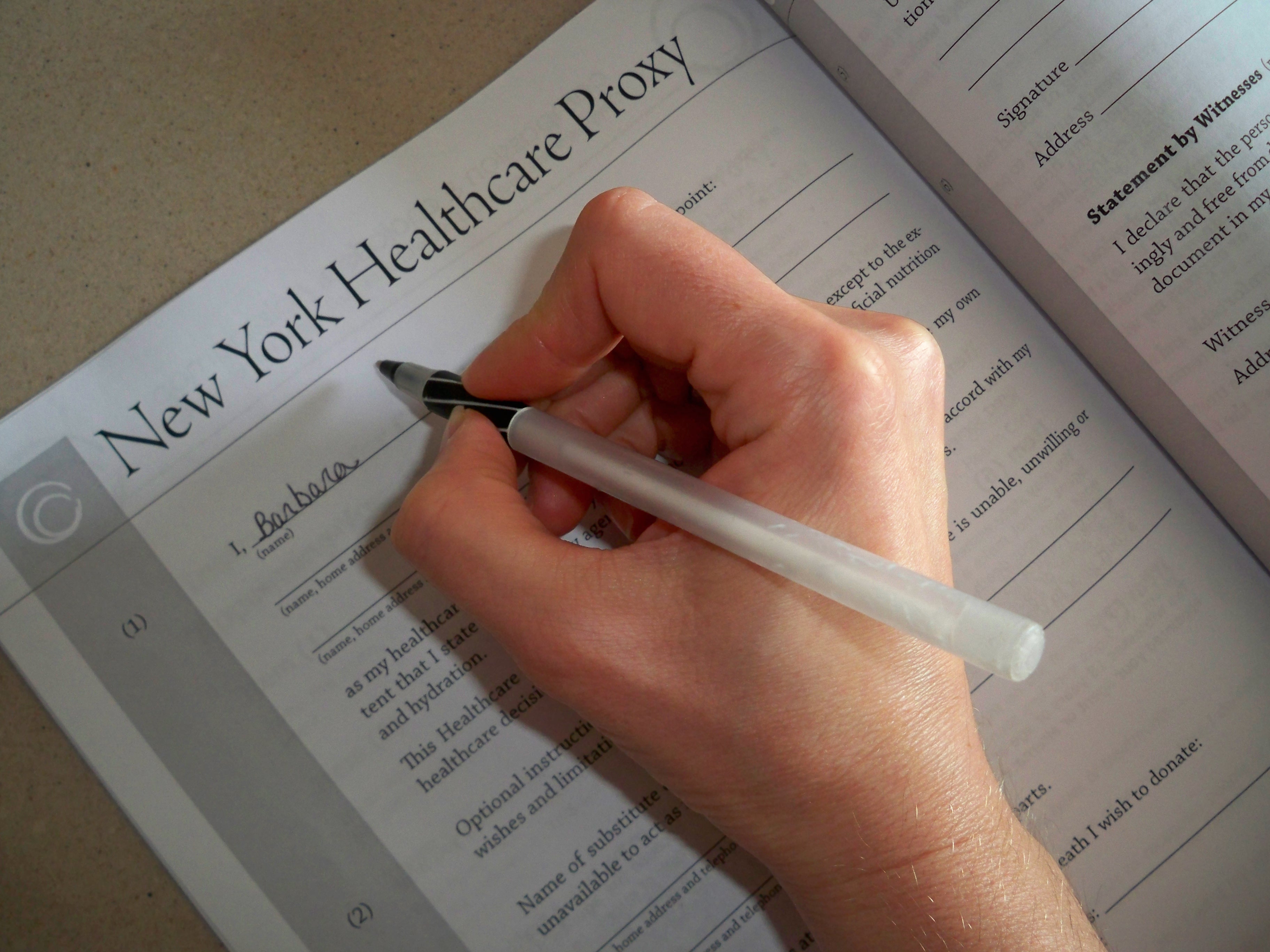Ugh. Paperwork. We’re not even exempt from it while we’re preparing to die.
When our “Year to Live” teachers announced that our assignment for the month is to fill out our advance directives, I felt irritated. Kind of the way I feel as April 15 rolls around each year.
 But the last thing I want is to be kept alive for days or months when the prognosis is grave and there is little chance that I will regain mental or physical function. So paperwork it is.
But the last thing I want is to be kept alive for days or months when the prognosis is grave and there is little chance that I will regain mental or physical function. So paperwork it is.
(Listen up – everyone should at least consider doing this, even if you are young and healthy!)
Thankfully, Tricycle Magazine has assembled a list of documents we should all consider in our end of life planning. They call it the Deathcare Dossier. Armed with this list, I begin with my advance directive.
What are advance directives? Simply put, they are the legal documents that protect your right to refuse medical treatment you do not want, or request treatment you do want, in the event you lose the ability to make decisions yourself.
In New York state, where I live, this means two legally-binding documents:
- Health Care Proxy — lets you name someone to make decisions about your medical care — including decisions about life support — if you can no longer speak for yourself.
- Living Will — lets you state your wishes about medical care in the event that you develop an irreversible condition that prevents you from making your own medical decisions.
Chodo, one of our teachers, advised us to think carefully about who we would choose as our health care proxy. Too many times, he says, people pick a close relative, who — when it comes time to make the all important decision — can’t carry through with it.
For this reason I decide to put down my husband, but I also name a back-up proxy — my brother, who I believe can honor my end-of-life decisions calmly as a result of his years as an ER physician.
It’s also in the health care proxy document that I check off the boxes which will allow me to donate organs upon my death. I come from a long line of doctors who, to a large extent, gained the skills they have because someone donated their body to science, so I have no trouble choosing from the many options:
I do wish to be an organ donor. Upon my death I wish to donate any needed organs, tissues, or parts. My gift is for the following purposes: transplant, therapy, research, education.
Next, the living will. This is pretty straight-forward (though it does send a chill down my spine to sign something that begins: “I, Barbara, being of sound mind, make this statement…”)
It’s here that I direct my physician to withhold or withdraw treatment that merely prolongs my dying, if I should be in an incurable or irreversible mental or physical condition with no reasonable expectation of recovery.
I do feel more at rest when I note that the living will states:
I desire vigorous treatment of discomfort, even if the treatment unintentionally causes or hastens my death.
Thirty minutes later, my documents are finished and signed by two witnesses, the lovely couple who lives across the hall.
Now all I have left to do is give copies to my doctor, my attorney and any family members or close friends I want.
I have to say, I’m feeling a certain sense of accomplishment.





Great exercise here. Living wills are so much more than pieces of paper and legal arrangements, they really confront us with our mortality. My personal fear around doing one is that it might be like a self-fulfilling prophesy, which of course is completely irrational and rooted in my own fear of death. Then again, dying is not really a rational passage anyway, so perhaps there’s a lot to learn from my irrationality :-).
Funny you should mention the self-fulfilling prophesy. Our teacher remarked in class that many people become superstitious when it comes to these documents. So you are in good company! I think this irrationality you mention is what Joan Didion refers to as “magical thinking” in her book, “The Year of Magical Thinking.” I plan to report back on that when I’m done with her fascinating piece of work. How Didion survives the deaths of her husband AND her daughter in one year is, as of yet, beyond my ability to comprehend.